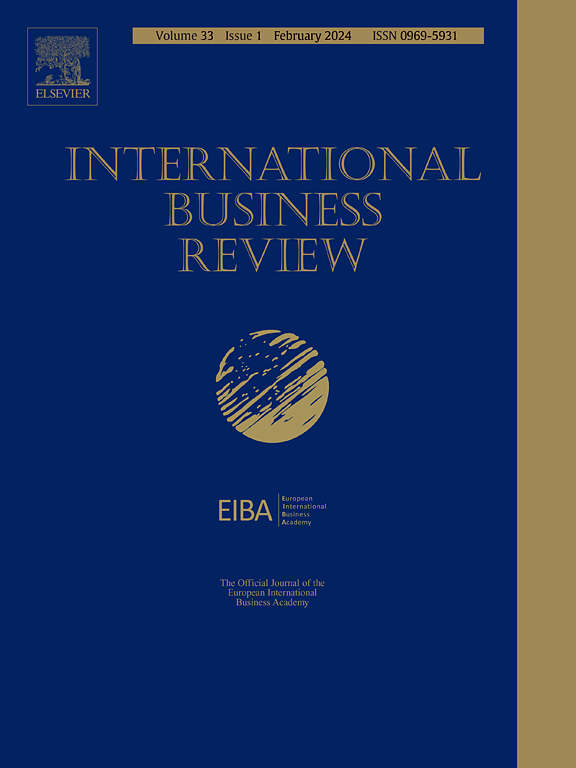Financial constraints, institutional quality and import trade flows: An empirical investigation on Italian manufacturing SMEs
IF 6.1
1区 管理学
Q1 BUSINESS
引用次数: 0
Abstract
This work investigates the relation between local institutions and international business, considering the Italian manufacturing industry and SMEs’ import trade flows between 2015 and 2019. In detail, we test the hypothesis of whether courts’ inability to enforce contracts can amplify uncertainty on the market, discouraging foreign suppliers from performing international transactions. We interpret these expectations in terms of financial constraints, imagining that the quality of a legal system limits firms’ access to local financial resources, which are essential to guarantee such operations. The proposed hypothesis is assessed considering alternative explanations that might characterize importers: absence of ex-ante business networks on the global market (i), expected bankruptcy risks (ii) and asymmetric information (iii). Results are consistent to several robustness tests and, according to the collected evidence, we cannot reject the hypothesis that judicial quality might represent an institutional barrier to local SMEs, preventing their international business strategies.
金融约束、制度质量与进口贸易流动:意大利制造业中小企业的实证研究
本文以2015年至2019年意大利制造业和中小企业的进口贸易流量为研究对象,考察了地方机构与国际商业之间的关系。具体而言,我们检验了法院无法执行合同是否会放大市场上的不确定性,阻碍外国供应商进行国际交易的假设。我们从财务约束的角度来解释这些期望,假设法律体系的质量限制了公司获得当地财务资源的机会,而这些资源对保证此类业务至关重要。对提议的假设进行评估时,考虑了可能具有进口商特征的其他解释:在全球市场上缺乏事前商业网络(i)、预期破产风险(ii)和信息不对称(iii)。结果与若干稳健性检验相一致,根据收集到的证据,我们不能拒绝这样的假设,即司法质量可能是当地中小企业的制度障碍,阻碍了它们的国际业务战略。
本文章由计算机程序翻译,如有差异,请以英文原文为准。
求助全文
约1分钟内获得全文
求助全文
来源期刊

International Business Review
BUSINESS-
CiteScore
14.10
自引率
6.90%
发文量
95
审稿时长
62 days
期刊介绍:
The International Business Review (IBR) stands as a premier international journal within the realm of international business and proudly serves as the official publication of the European International Business Academy (EIBA). This esteemed journal publishes original and insightful papers addressing the theory and practice of international business, encompassing a broad spectrum of topics such as firms' internationalization strategies, cross-border management of operations, and comparative studies of business environments across different countries. In essence, IBR is dedicated to disseminating research that informs the international operations of firms, whether they are SMEs or large MNEs, and guides the actions of policymakers in both home and host countries. The journal warmly welcomes conceptual papers, empirical studies, and review articles, fostering contributions from various disciplines including strategy, finance, management, marketing, economics, HRM, and organizational studies. IBR embraces methodological diversity, with equal openness to papers utilizing quantitative, qualitative, or mixed-method approaches.
 求助内容:
求助内容: 应助结果提醒方式:
应助结果提醒方式:


